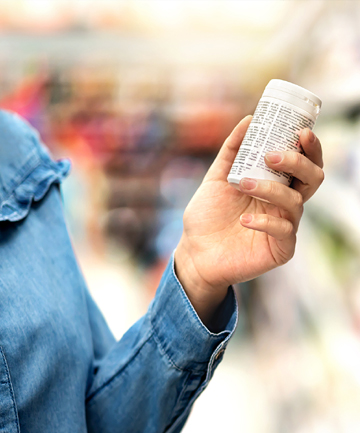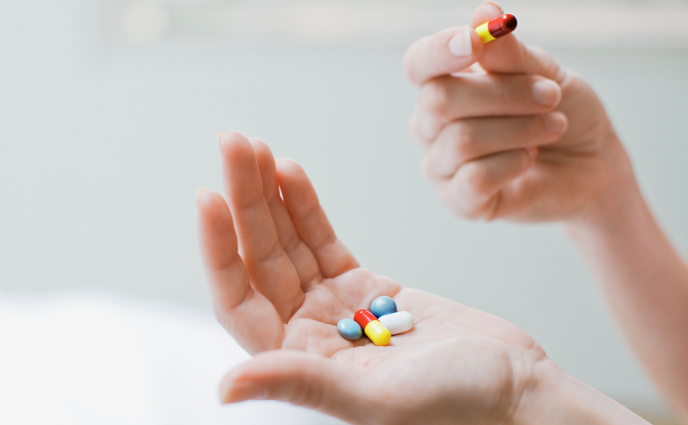"Italy is a poor example of handling the situation, as most people did not get any medical interventions," says Rosenfield. The key, she says, lies in seeking medical attention at the right time: "The CDC and the healthcare system is asking people, especially those under 50, to wait until they display 'real' symptoms of the virus that cannot be managed at home."
Buchholtz-Rosenfield also reminds us, "80 percent of people with a positive COVID test will be fine and do not need significant interventions, other than management of their temperature with acetaminophen (or similar), hydration and avoiding contact with other people."
Still, even if you're not racing to the local ER at first sign of a cough, it is important to keep your doctors informed. "I would reach out to a physician or GP to go on record with your condition," advises Buchholtz-Rosenfield.
Image via Al Bello/Getty Images News/Getty
Buchholtz-Rosenfield says your priorities should be: "Management of your temperature with acetaminophen (not anti-inflammatories), good hydration, zinc supplements, and rest and avoidance of others." And if you're starting to get a little cabin fever? "It's a good time for streaming or taking classes online."
We also asked Buchholtz-Rosenfield if she had any tips for opening airways for those suffering from shortness of breath. But she says that this definitely falls into the aforementioned category of "'real' symptoms of the virus that cannot be managed at home:" "If you or someone in your home is experiencing difficulties breathing, that is the time to seek real medical interventions."
Image via Jasmina007/E+/Getty
"Nutritionists and others are recommending zinc, vitamin C and lots of fluids," advises Buchholtz-Rosenfield. Bored of popping pills and mixing mysterious powders into your morning smoothies? "Fresh vegetables and fruits are also a good source of energy and vitamins," says Buchholtz-Rosenfield.
Image via Tero Vesalainen/iStock/Getty Images Plus/Getty
"Yes!" says Buchholtz-Rosenfield, "Crazy talk about drinking fluids to move the virus from your mouth to your stomach to kill it? WOW." (Though you should still be drinking those fluids!)
Buchholtz-Rosenfield also says there's also little real world validity to the whole "holding your breath for 20 seconds test." As she puts it, "If those actually worked, we wouldn't be treating as many cases and would just be telling people to drink water and hold their breath."
Image via Thanasis Zovoilis/Stone/Getty
"It is sad to say, but to reduce spread, it really is important to limit contact with others," reminds Buchholtz-Rosenfield. "The social contact issues are hard, even for people who are used to working at home, as this means no dinners out or gatherings."
Another important reminder? Buchholtz-Rosenfield says that it is important to "eliminate children playing together from different households." It might seem safe, but as she cautions, "You do not know who may be carrying the virus without any outward symptoms."
Image via Maja Hitij/Getty Images News/Getty









